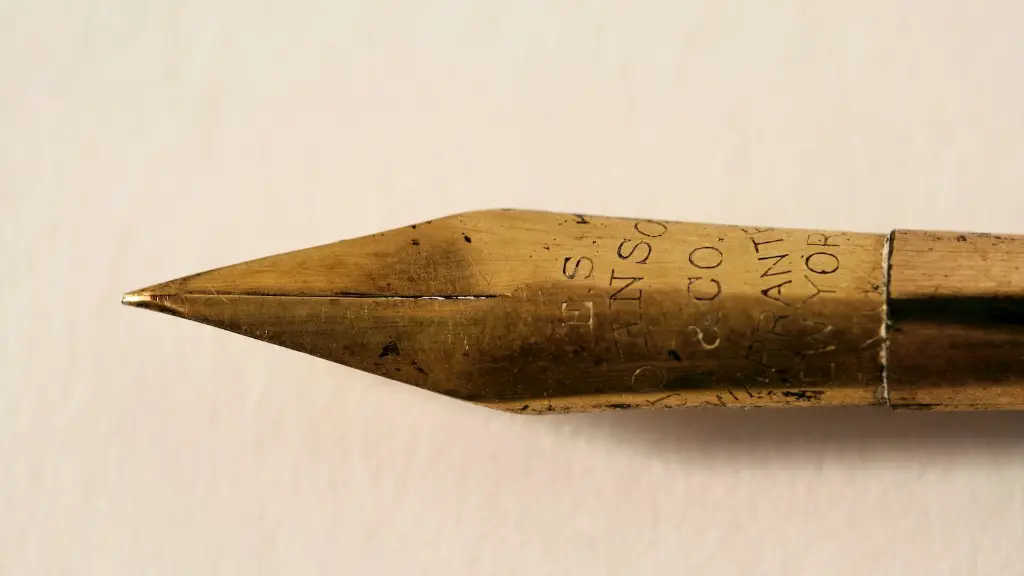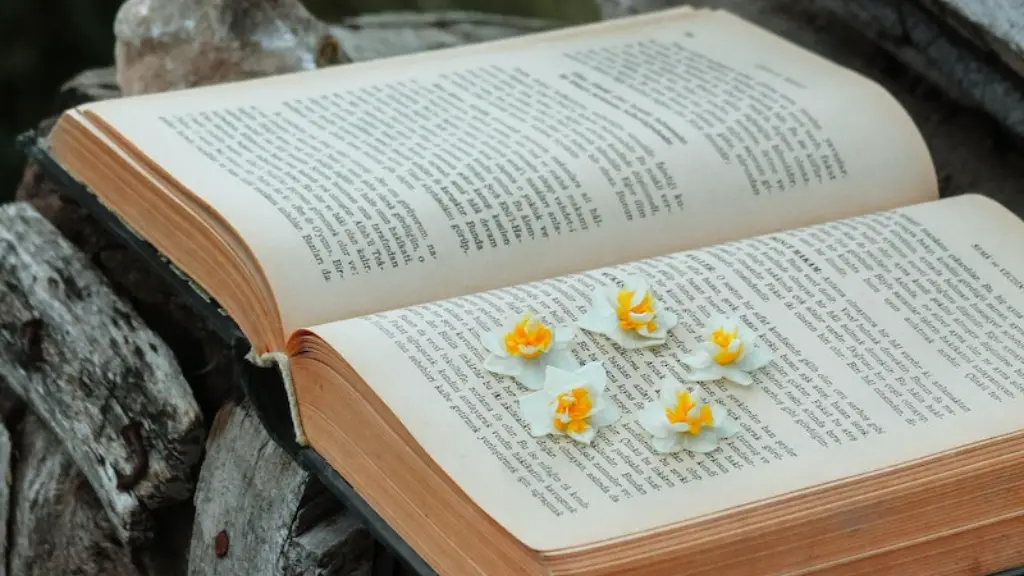What is Classical Poetry?
Classical poetry is a type of literature that was popular during the classical period of the ancient civilizations such as Greece and Rome. It is still taught in literature classes today and is one of the oldest forms of poetry known to man. Classical poetry is characterized by its elevated and artificial language, as well as its precise structure and form. It is often used to explore and express ideas of love, war, and even death.
Finding Inspiration
When it comes to writing classical poetry, the key is to find the right inspiration. It could come from a variety of sources such as a book, poem, song, painting, film or even another poem. Once you’ve found your muse, make sure you really understand the story or concept before you start writing. It is important to always keep in mind your end goal for the poem when searching for your inspiration.
Choosing a Form
Classical poetry is well-known for its unique and precise structure and form. There are various well-known forms of classical poetry such as the sonnet, elegy, and ode. Before you start writing, it is important to decide on a particular form to adhere to. This will help you to bring structure and form to your poem, making it more readable and enjoyable.
Getting the Tone and Meter Right
The tone of a classical poem is usually quite formal and serious. To stay true to the form, classical poems often contain metered verse, which is a combination of stressed and unstressed syllables. The specific meter and way of speaking must also be adhered to in order to adequately express the content of the poem. Relying on the strength of language is important, as emotions and ideas should be conveyed through an organized and properly structured verse.
Bringing Clarity to Your Theme
The theme of a classical poem is an important aspect, as it is the focus that should be brought out in the poem. Everything else should be secondary to the main idea and should function to enhance it. When writing, it is important to choose your words, images and figures of speech carefully to bring clarity to your theme.
Using Imagery and Personification
Imagery and personification are two effective tools that help to bring emotion and life to a poem. Personification is the act of using human characteristics to describe a non-human object or emotion, while imagery is the use of vivid and descriptive words that evoke a mental image. When writing classical poems, both of these techniques should be used in order to create a vivid picture in the reader’s mind.
Using Metaphors
Metaphors are figures of speech in which one thing is referred to as another. These can be used to great effect in classical poetry as they help to bring out the emotions and ideas conveyed in the poem. When used correctly, metaphors can help to bring a sense of richness and depth to the reader’s experience.
Exploring Different Themes
Classical poetry can be used to explore and express a variety of themes, such as love, war, death and nature. When choosing a particular theme, it is important to ensure that it is something that resonates with you. If you don’t feel a connection to your subject matter, then it is unlikely that your poem will convey the right emotions.
Using Rhyme and Alliteration
Rhyme and alliteration are two classic tools used in classical poetry. The use of rhyme helps to create a particular flow and mood, while alliteration adds an extra layer of structure and metre. While both of these techniques can be effective, it is important not to rely too heavily on them as this can result in a poem that sounds contrived.
Revising and Editing
When it comes to writing classical poetry, the last step is to revise and edit your poem. This is an essential process and should not be overlooked as it is the only way to guarantee a high-quality final product. When revising, it is important to look for any areas that can be improved, such as the structure, language or rhyme scheme.
Using Active Language
Using active language is an important part of writing classical poetry. Active language helps to bring clarity and emotion to a poem and can be used to engage the reader. Instead of relying on the passive voice, it is important to use strong verbs and ensure that your sentences are clear and concise.
Setting the Right Mood
When writing classical poetry, it is important to set the right mood. This can be done through the careful use of language, imagery and metaphors. Use words that evoke the emotion or idea you are trying to convey to help build a strong atmosphere.
Exploring Different Cultures
Exploring different cultures can be a great way to gain a better understanding of classical poetry. Researching the Greek and Latin cultures is an effective way to explore the origins of classical poetry and discover new techniques and methods. This can help to bring freshness and creativity to your writing and open up new opportunities for expression.
Working With an Expert
When it comes to mastering the art of classical poetry, there’s no harm in working with an expert. They can help to provide advice on how to structure and format your poem, as well as giving you tips on where to go for inspiration. An expert can also give you objective feedback on your work that can help you to improve and edit it.
Creating Rewriting Plans
Creating rewriting plans can be a great way to ensure that your poem remains relevant and up to date. This involves taking the time to consider different aspects of the poem and making changes where necessary. You may wish to edit the form or structure, add or remove sections, or even re-order the poem itself. Whether you are making minor tweaks or major changes, always make sure you are creating something new and fresh.
Exploring Literature
Exploring classical literature is a great way to gain a better understanding of the form and structure of classical poetry. Here, you can find examples of classical poems, as well as learn more about the historical and cultural aspects of writing in the form. This can be a great source of inspiration and ideas when writing your own poems.
Finding a Unique Voice
When writing classical poetry, it is important to find your own unique voice. This can be done by experimenting with different techniques and styles to discover what works for you. Focus on finding an individual voice when it comes to writing. This involves being brave, taking risks and exploring new ideas and techniques.
Staying True to Yourself
When writing classical poetry, it is important to always stay true to yourself and your own ideas. Doing this will help to ensure that your poem is a genuine reflection of your goals and values. Instead of trying to mimic other poets, focus on finding your own writing style and use this to capture the true essence of your thoughts and feelings.
Encouraging Imagination
Writing classical poetry often requires a level of imagination. This can be done by constructing vivid mental images or scenes in your head. To do this, try to use descriptive language and vivid metaphors to help paint a clear picture in the reader’s mind.
Finding Your Own Style
When it comes to writing classical poetry, it is important to find your own style. This does not mean completely throwing away classic structures and forms, but rather innovating and experimenting with them. This can involve finding new ways to use rhyme and metre, or using new and fresh ideas in order to add a modern twist to traditional literary forms.





